How to Get Rid of Worms in Dogs: Effective Treatment and Prevention Strategies
Veterinarians often request a stool sample during a pet’s annual visit because it helps them check for intestinal parasites in dogs. These parasites, commonly referred to as worms, can reside in a dog’s digestive system without being visible. Many dog owners believe their pets are not at risk of getting worms, but all dogs, regardless of their environment or lifestyle, can be affected.
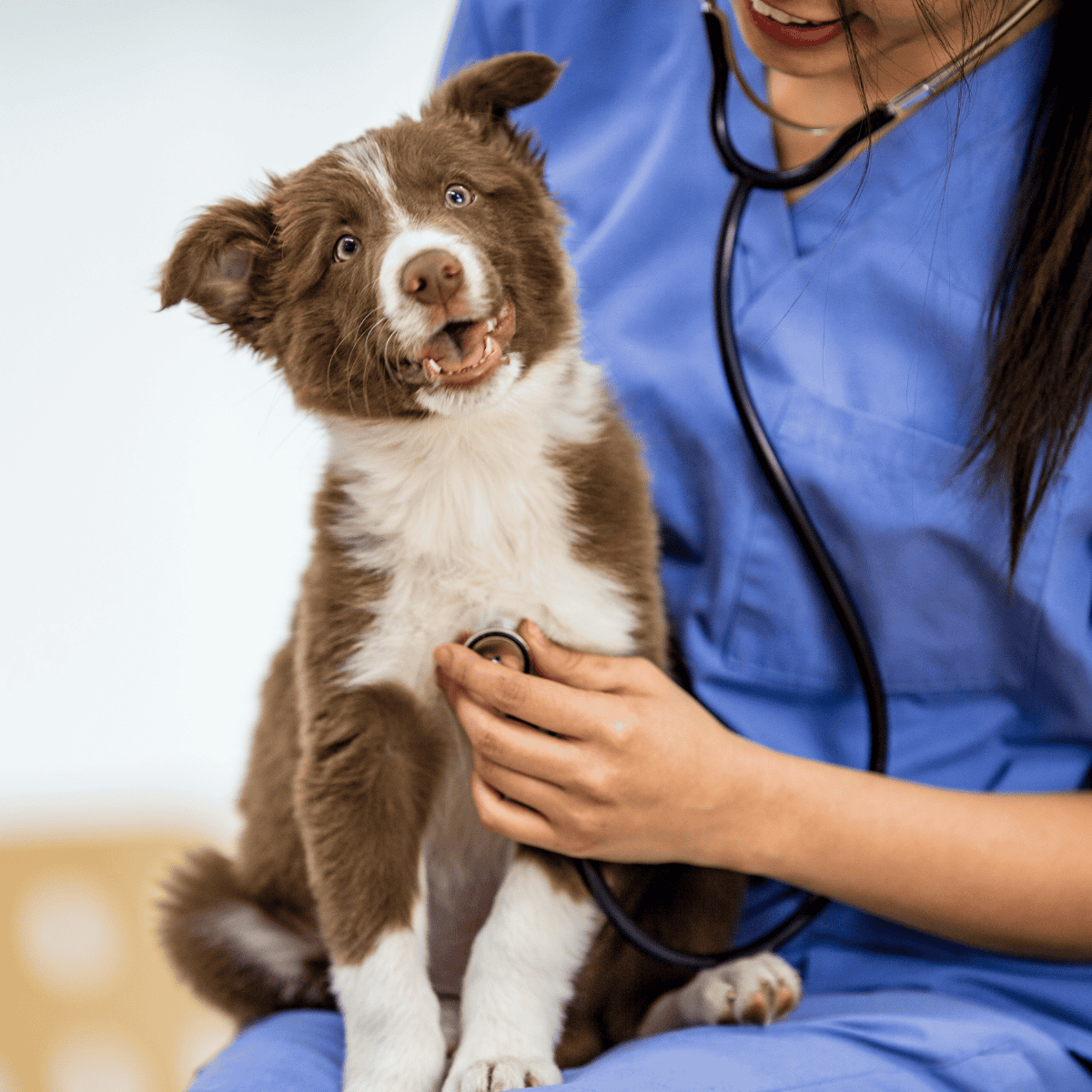
A fecal exam is necessary because most worms can’t be seen with the naked eye. To detect them, vets use a special test or examine the sample under a microscope. Understanding the presence of worms in a dog is crucial because treating and preventing these parasites is an important aspect of pet health care.
Recognizing Worm Infestation in Dogs
Dogs with worm infections may show several noticeable signs. A common symptom is a change in appetite. Dogs might eat less due to discomfort, while others might eat more yet still lose weight. Weight loss can be a significant indicator if it happens suddenly.

Vomiting and diarrhea are also symptoms to watch for. In some cases, worms themselves might be visible in the vomit or feces. Coughing, especially in puppies, can indicate lungworms.
Another sign is a dull coat. Healthy dogs usually have shiny fur, while a dog with worms can have a rough or coarse coat. Additionally, dogs might scoot or drag their rear end on the ground due to itchiness or irritation.
How Dogs Catch Worms
Eating Poop with Worm Eggs
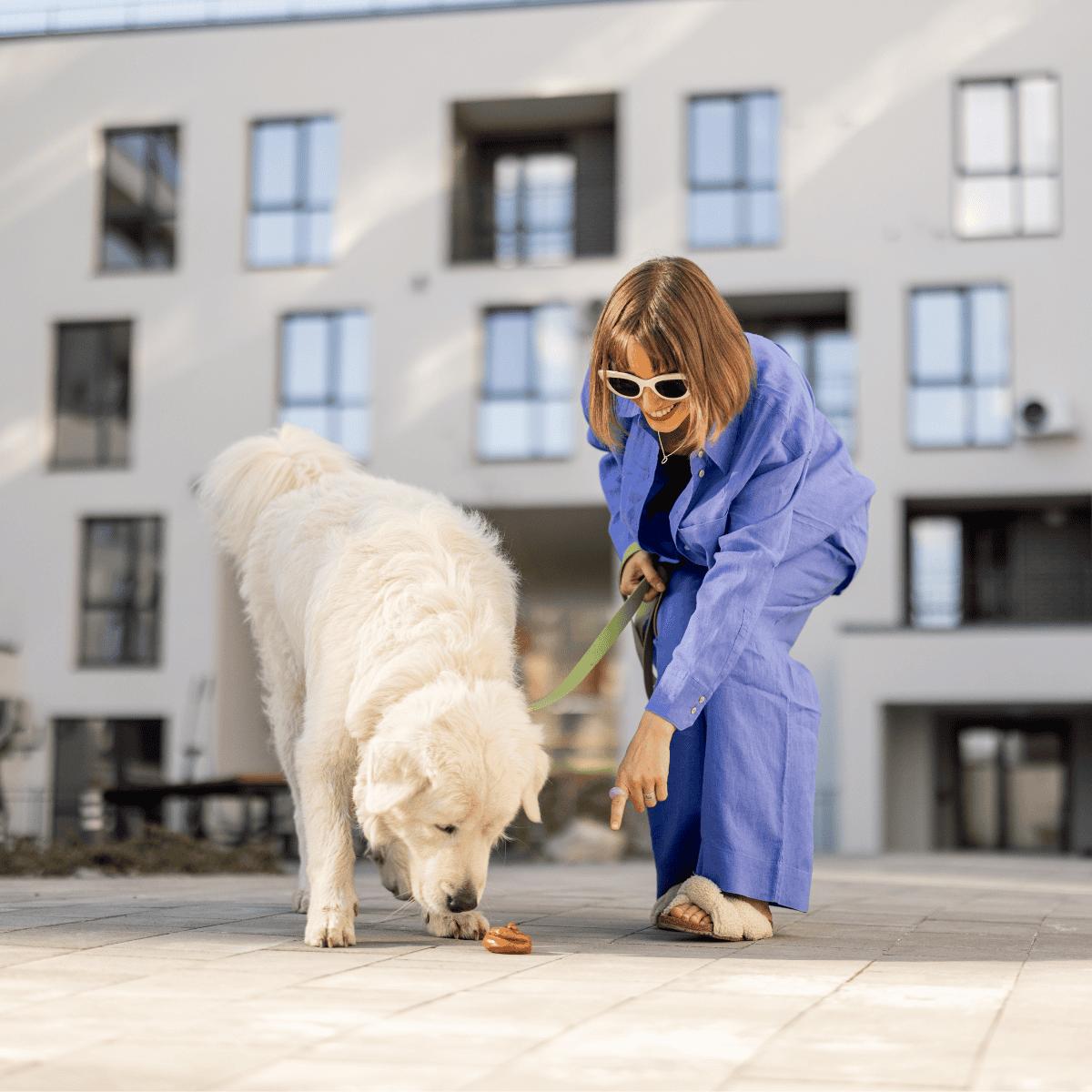
Dogs can get worms by eating their own or another animal’s poop. Poop may contain tiny worm eggs that are not visible to the naked eye. These eggs can be swallowed by a curious dog sniffing around.
Puppies Getting Worms From Their Mom

Newborn puppies can get worms from their mother. This can occur in two ways, before birth through the placenta or after birth through the mother’s milk. Both these methods transfer the worms from mom to pup.
Consuming Raw Meat or Wild Animals
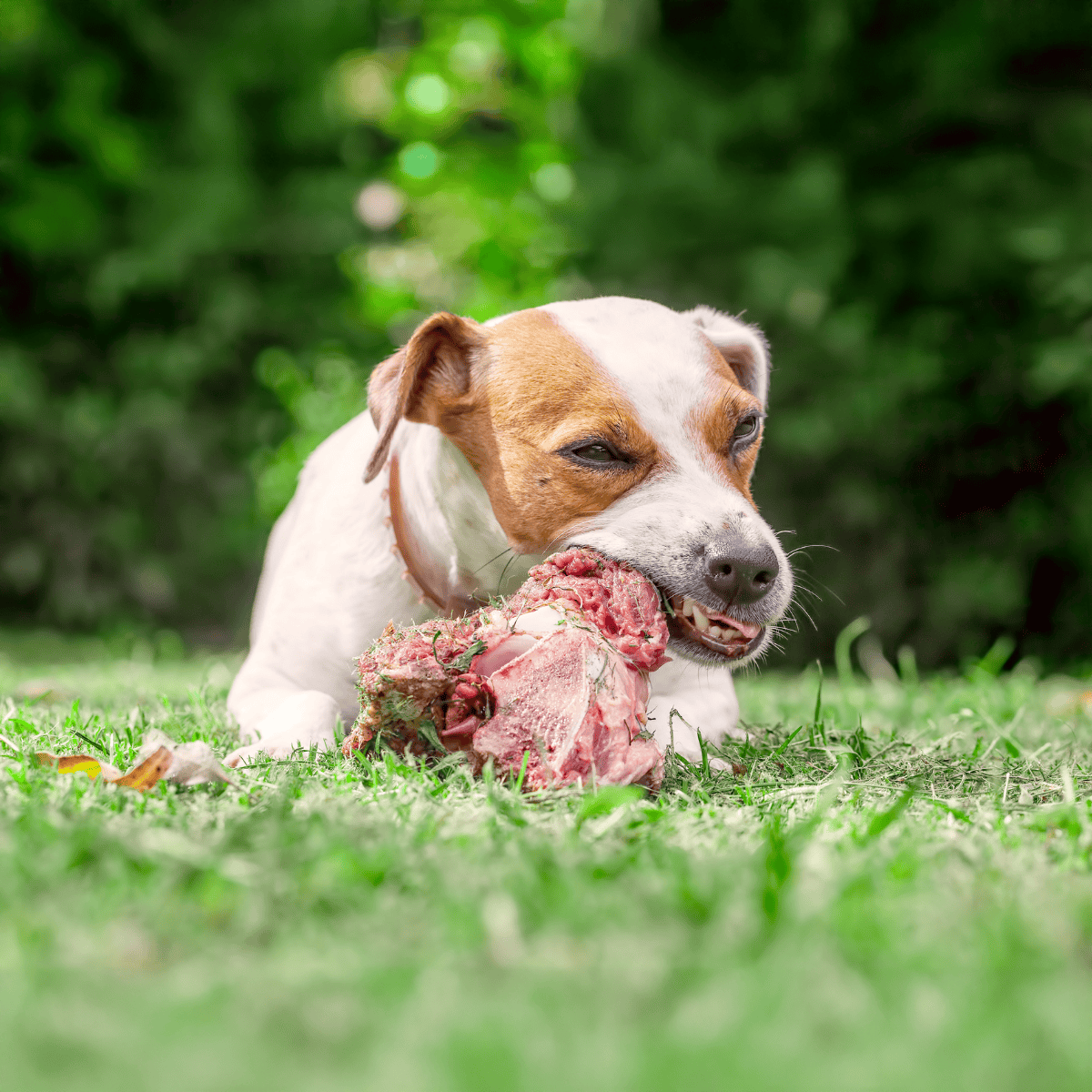
Eating raw meat or small animals can cause some types of worms. These worms hide in the animals’ muscle tissue as cysts. When a dog eats this meat, the worms become active and start to spread.
Swallowing Parasites on Their Fur

Certain worms can get into dogs through tiny creatures living on their bodies. Take tapeworms, for instance. They can hitch a ride on fleas. If a dog munches on a flea, the worm inside the flea can start growing in the dog’s stomach.
Through Contact with Infected Surfaces
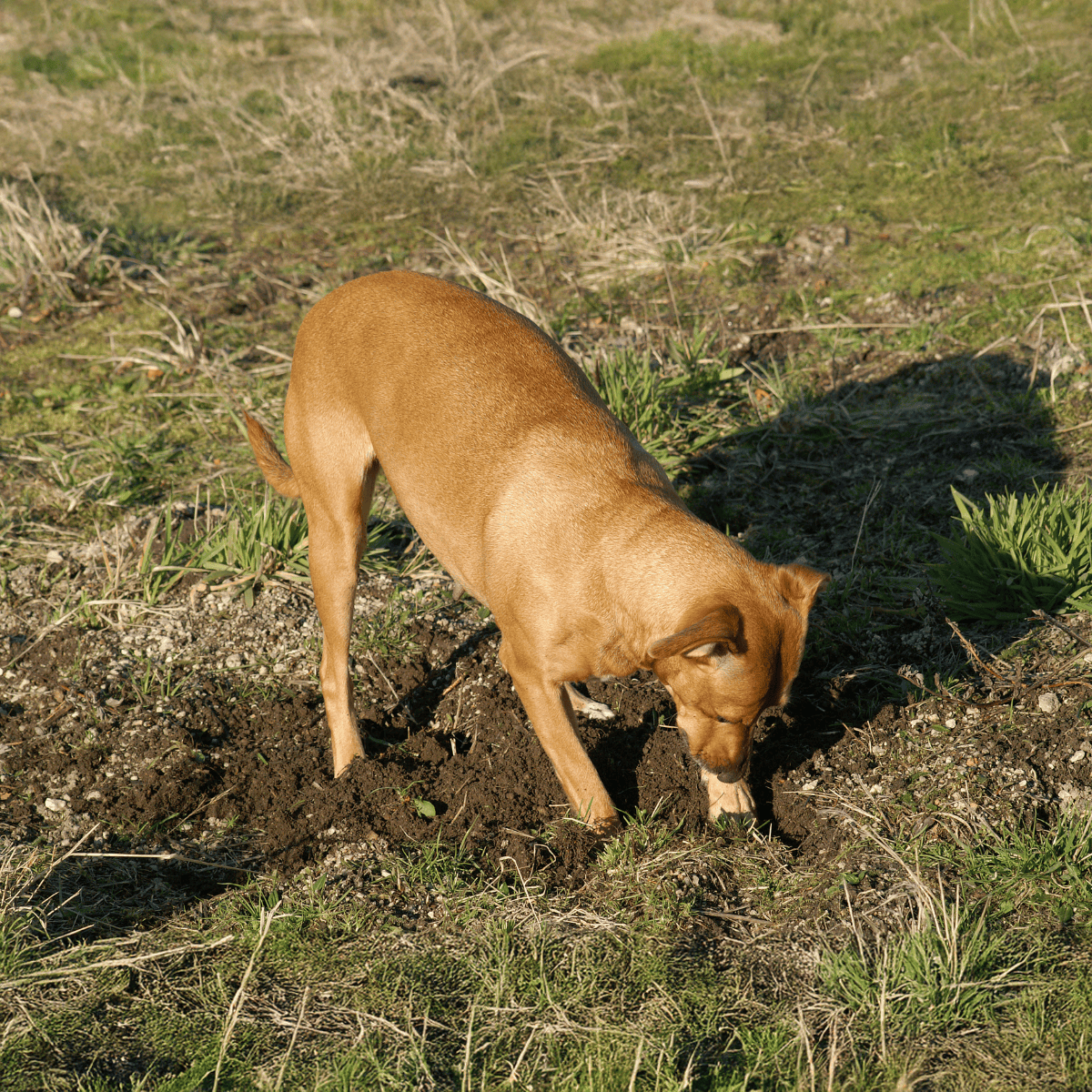
Hookworms are a tricky type of parasite for dogs. They can spread through direct contact. When a dog steps on poop or soil with hookworm larvae, the worms can enter through the skin and infect the dog.
Enjoying this read?
We publish this content for free to generate interest in our Premium members' area. By subscribing, you can ask the writer any questions related to pet care and this article, get access to 100+ Premium Pet Care Guides and go Ad-Free with DogFix Premium for $2.99.
4 Common Worm Species in Dogs
Hookworms
Bloodsucking worms, often found in dogs, attach themselves to the small intestine. They are small, slender, and bear hook-like mouths for attaching inside the gut. These creatures consume blood and can pose significant risks to dogs, especially young puppies. These worms can be fatal for puppies when they cause significant blood loss. Their presence often goes unnoticed because their eggs, passed through the dog’s waste, are microscopic.
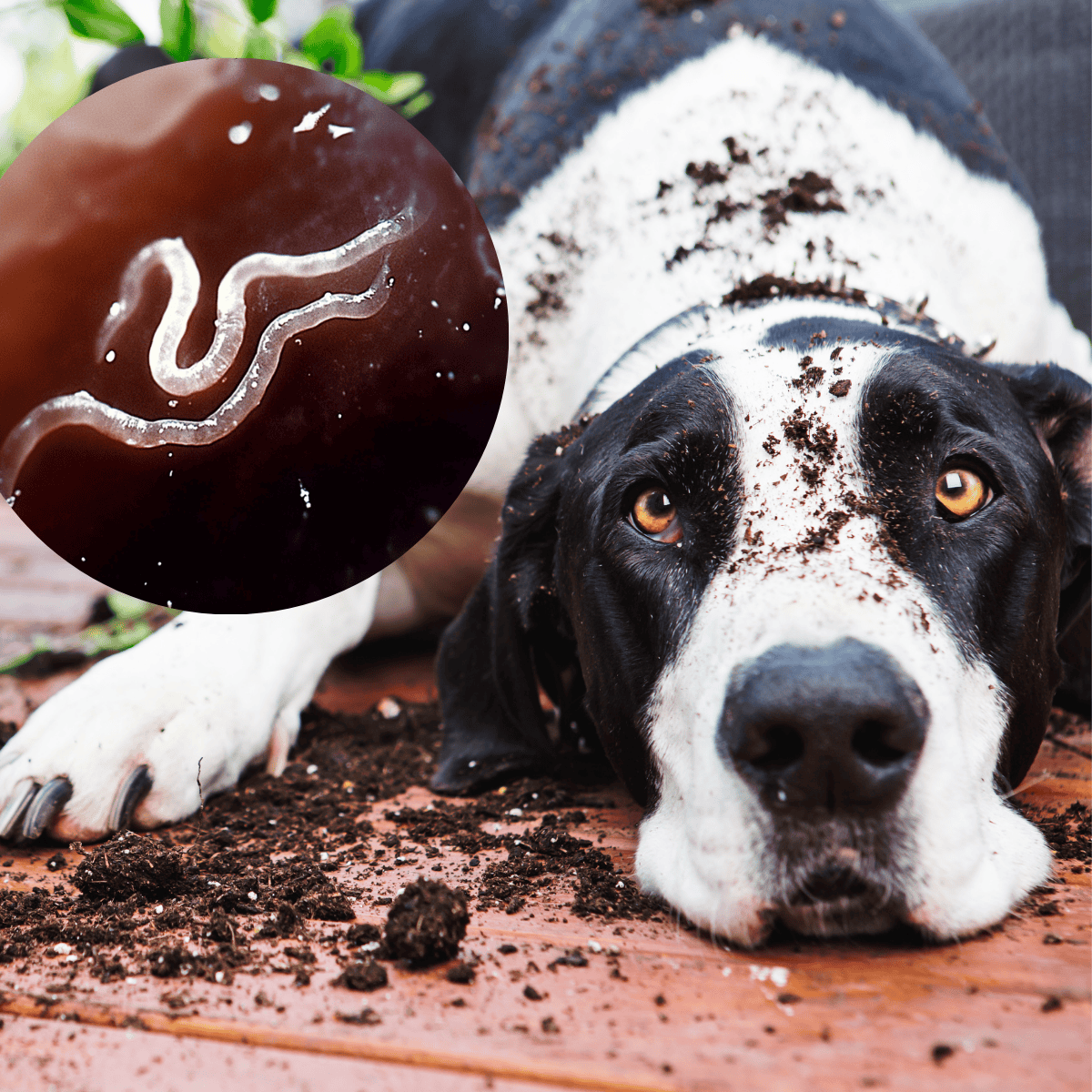
Dogs can become infected through soil contaminated with their larvae, which can penetrate through the skin or be ingested. Puppies can also acquire them during nursing. Dogs with hookworms are diagnosed by examining feces. Vets can prescribe medication to eliminate them.
Symptoms include fatigue and weakness, dark and tarry feces, diarrhea with blood, reduced weight, and pale gums. Once these signs are observed in our pet, it is important to visit the veterinarian for a health checkup.
Roundworms
Very common among puppies, these worms are usually in tissue form at birth. Puppies might inherit them in the womb or through their mother’s milk. They can be detected in a dog’s vomit or feces after treatment. Adults might carry them without visible signs, making them prevalent.
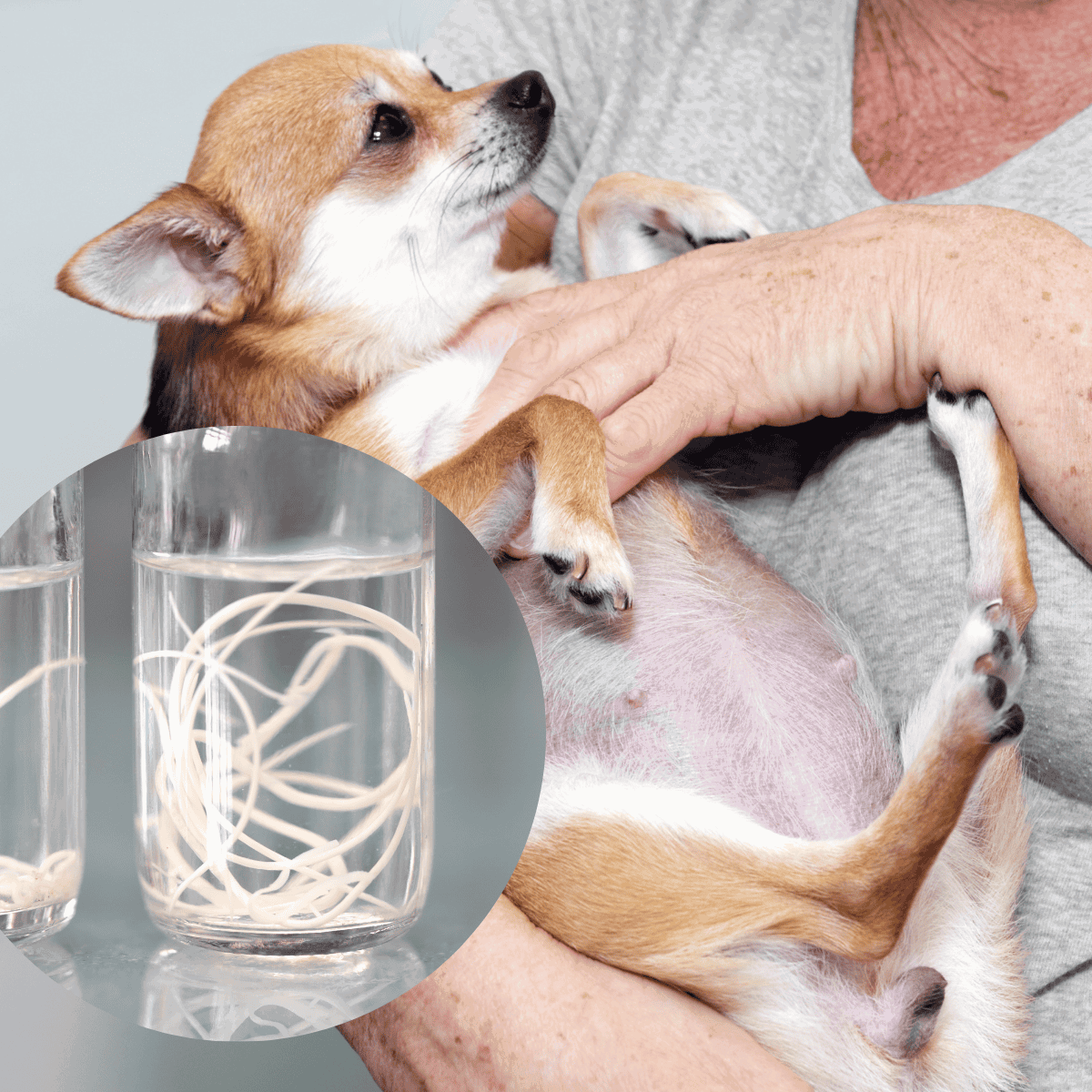
These creatures resemble strands of spaghetti, exhibiting a pale hue and can reach considerable lengths. Often present in feces or vomit, especially post-treatment, they contribute to various health concerns despite being difficult to see initially. Identification typically requires closer examination after deworming for confirmation.
Symptoms of roundworm infection include a noticeably large belly, poor puppy growth, and digestive problems. Monthly medications help control roundworm populations. For pregnant dogs, worming can help protect unborn puppies but might not eradicate all dormant larvae.
Whipworms
Dogs often come into contact with these parasites, which inhabit the large intestine. Their presence is usually hard to detect, as adult worms look like tiny threads. Infected dogs pass these resilient eggs through feces. The eggs can remain infectious for years.
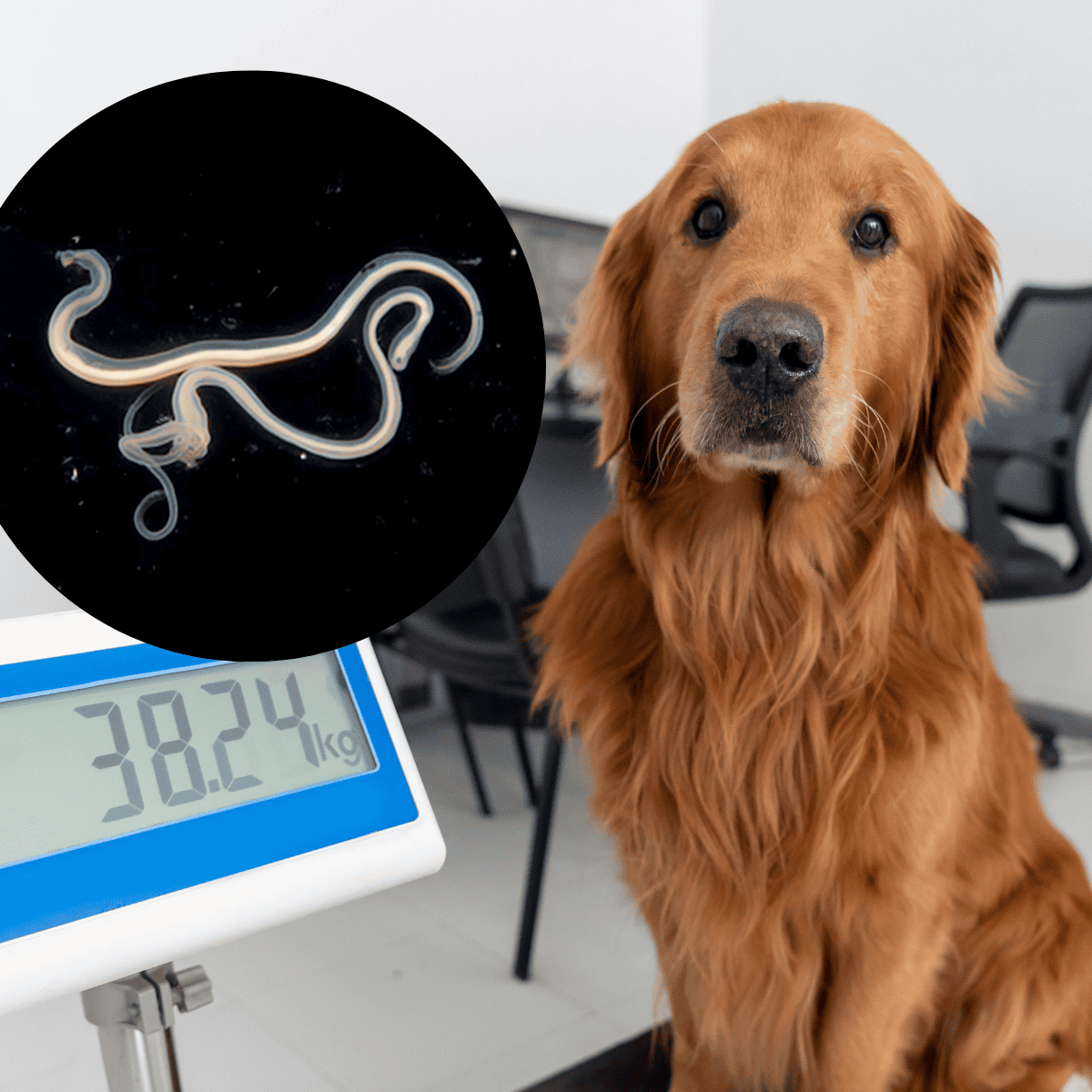
Symptoms that can be observed are a drop in the dog’s weight, dehydration, and digestive problems with bloody mucus. Diagnosing these worms can be challenging since they release eggs sporadically. Vets often treat based on symptoms due to diagnosis difficulties.
Tapeworms
These parasites are flat and segmented, commonly found in dogs’ intestines. Dogs usually acquire them through fleas. Flea larvae eat the eggs, and dogs then ingest these larvae as they groom or nibble at their fur. Most infected dogs remain asymptomatic but may experience irritation near their hind ends.

Signs that can be seen in dogs are scooting their bottoms on the ground or licking the affected area and seeing rice like particles, which are worm segments, near the dog’s tail. Special medications targeting these specific types are necessary, as not all wormers are effective against them.
A comprehensive approach involving regular veterinary checks and preventive medication can keep these parasites in check and ensure pets remain healthy and comfortable.
Ways to Know If Your Dog Might Have Worms
Are Worms Visible? What Are Their Characteristics?
Roundworms may appear in a dog’s stool or vomit, especially after treatment. Although full tapeworms are seldom observed, they release fragments that contain eggs, resembling grains of rice found in feces or near the anus.
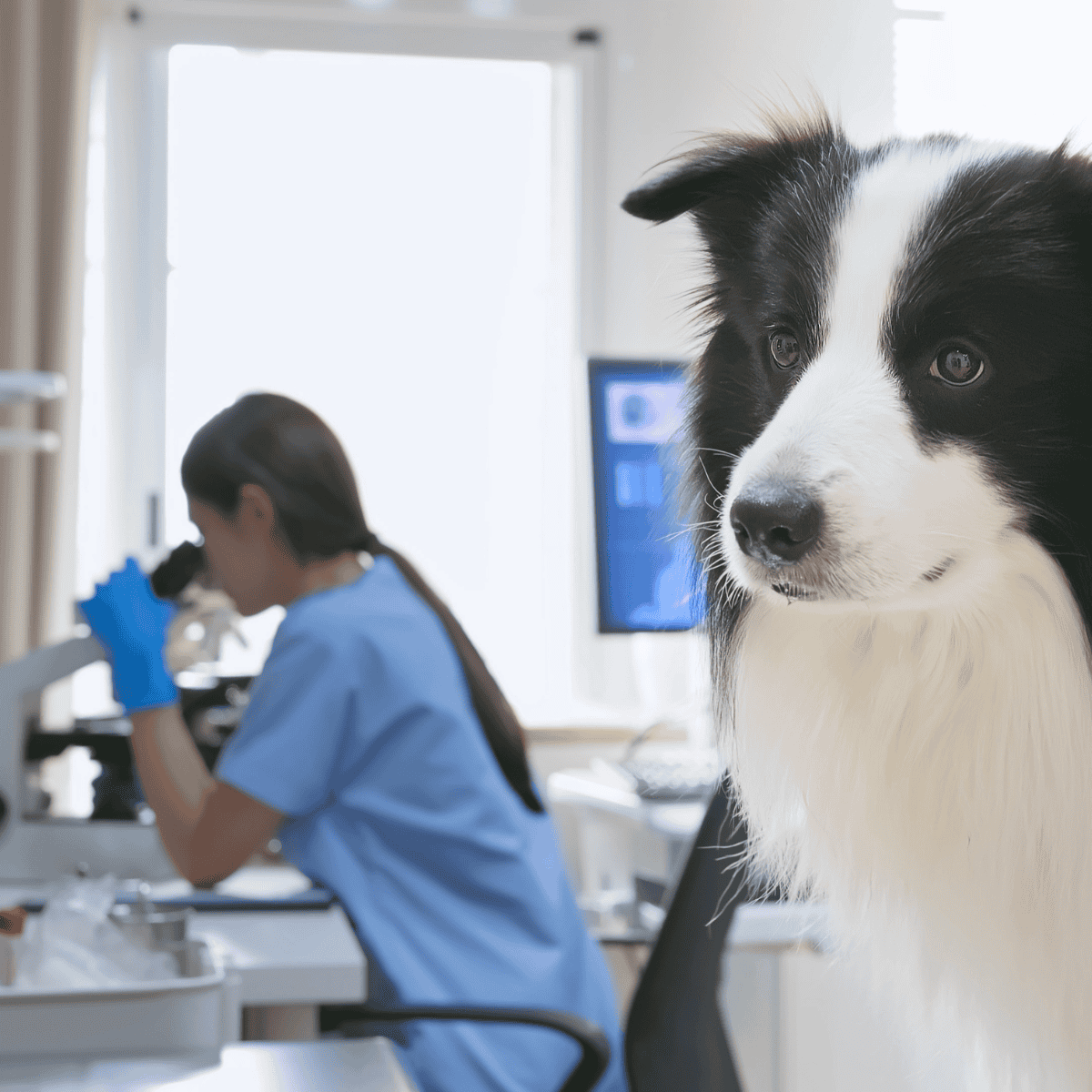
Hookworms and whipworms are rarely visible in stool, which emphasizes the importance of a stool test. Worm eggs are too small to notice without proper equipment. A vet will need to examine the stool under a microscope to find evidence of roundworms, whipworms, and hookworms.
Stool Examination by a Veterinarian
Timely detection of intestinal parasites is crucial for ensuring your dog’s health and minimizing environmental risks. During an exam, a vet will take a small stool sample and mix it with a special solution. This mixture is placed in a centrifuge to help separate the eggs.
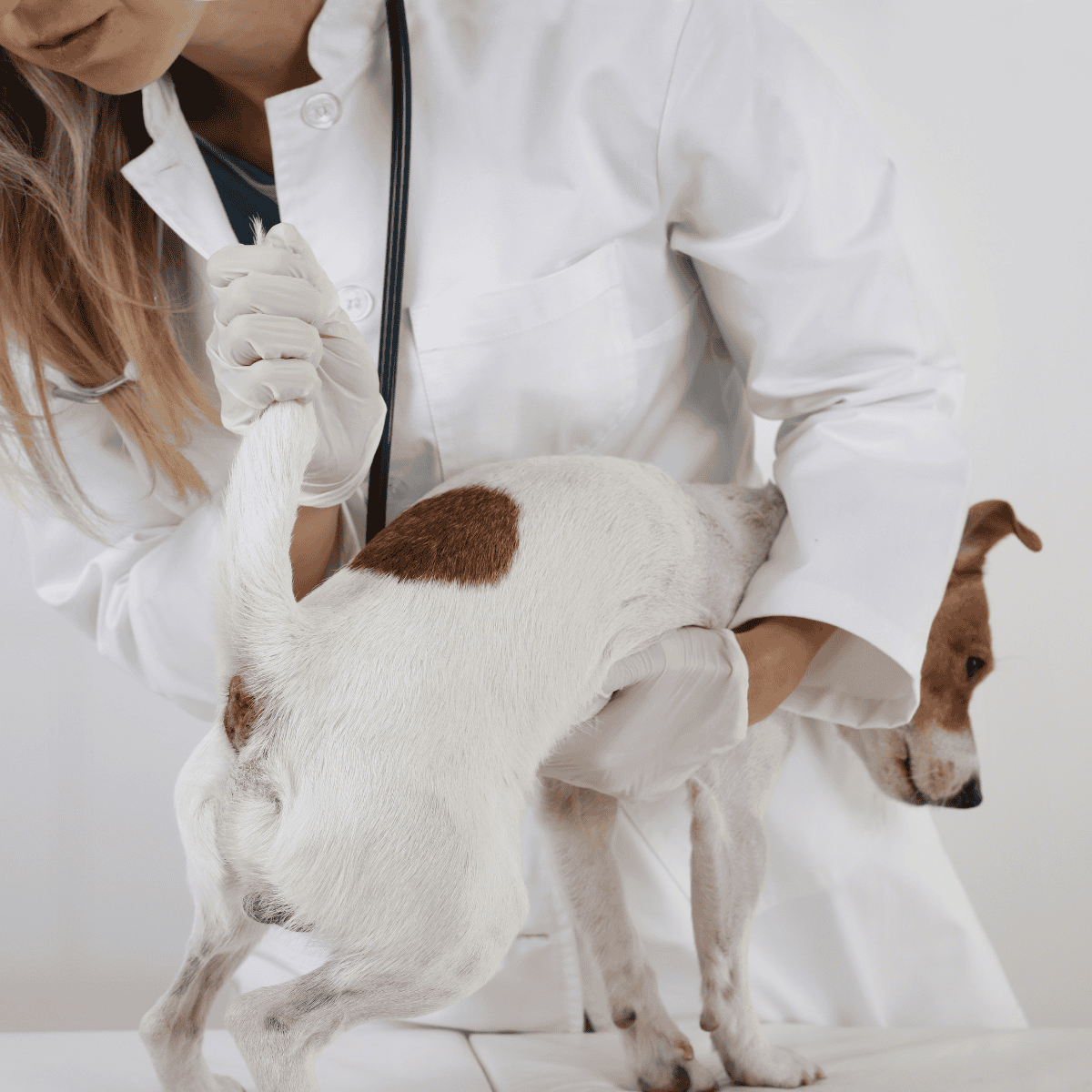
The upper layer of this mixture is then placed onto a slide for inspection under a microscope. Many veterinarians check stool samples during routine health assessments.
Tapeworm eggs might not appear in these tests, so it’s essential to notify the vet if you observe rice-like particles in the dog’s stool or fur around the tail.
Treatment Options
Treating worms in dogs involves using medications or trying natural remedies. Each choice has benefits and considerations for managing the problem effectively.
Medications for Worms in Dogs
Medications are a common way to treat worms in dogs. Vets often prescribe dewormers. These medicines target different types of worms such as roundworms, tapeworms, or hookworms.
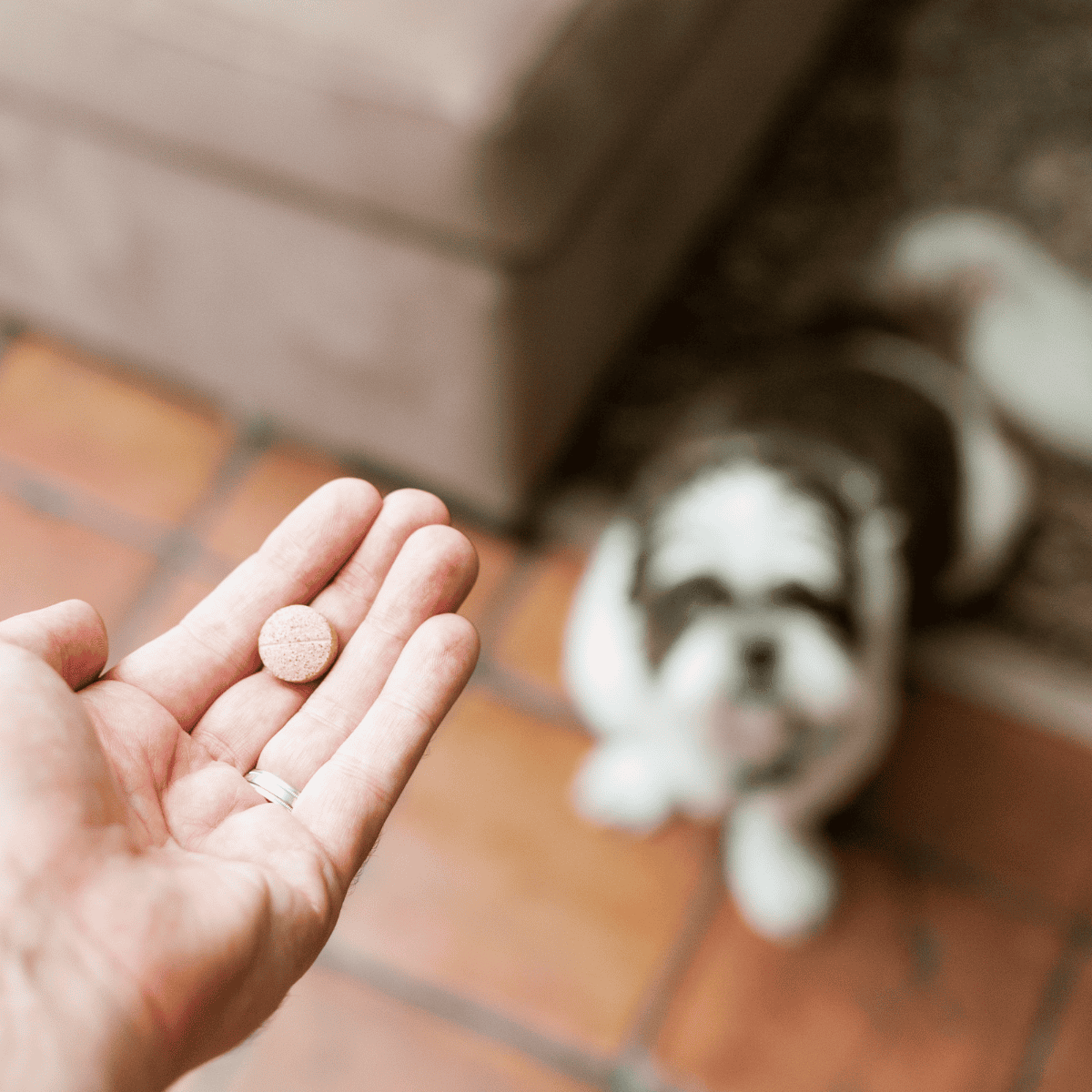
Administering the right dosage based on the dog’s weight and worm type is crucial. Regular vet check-ups help monitor the dog’s progress and ensure the worms are gone. It’s also important to follow up with repeat treatments, as needed, to prevent future infestations.
Some dogs might experience mild side effects such as vomiting or diarrhea. If these occur, it’s advisable to contact the vet for guidance. Keeping an eye on the dog after treatment can help catch any issues early.
Natural Remedies
Some choose natural remedies to treat worms in dogs. Pumpkin seeds are a popular option, as they contain a substance called cucurbitacin. This can help expel worms from the digestive tract. Ground pumpkin seeds can be sprinkled on the dog’s food regularly.

Carrots may also help reduce worms. Grated carrots can cleanse the stomach and intestines. Adding small amounts to the diet can provide gradual support in clearing worms.
While natural remedies are an option, they usually work best alongside traditional medicines. Consulting with a vet before starting any remedy ensures safety and effectiveness.
Administering Treatment
Following the correct procedures is key when treating dogs for worms. Owners must know how to administer oral medication and adhere to treatment schedules to ensure effective results.
How to Give Dogs Oral Medication
Giving a dog oral medication can be tricky. First, check the medication’s dosage and instructions from the vet. Always wash hands before and after giving medication.
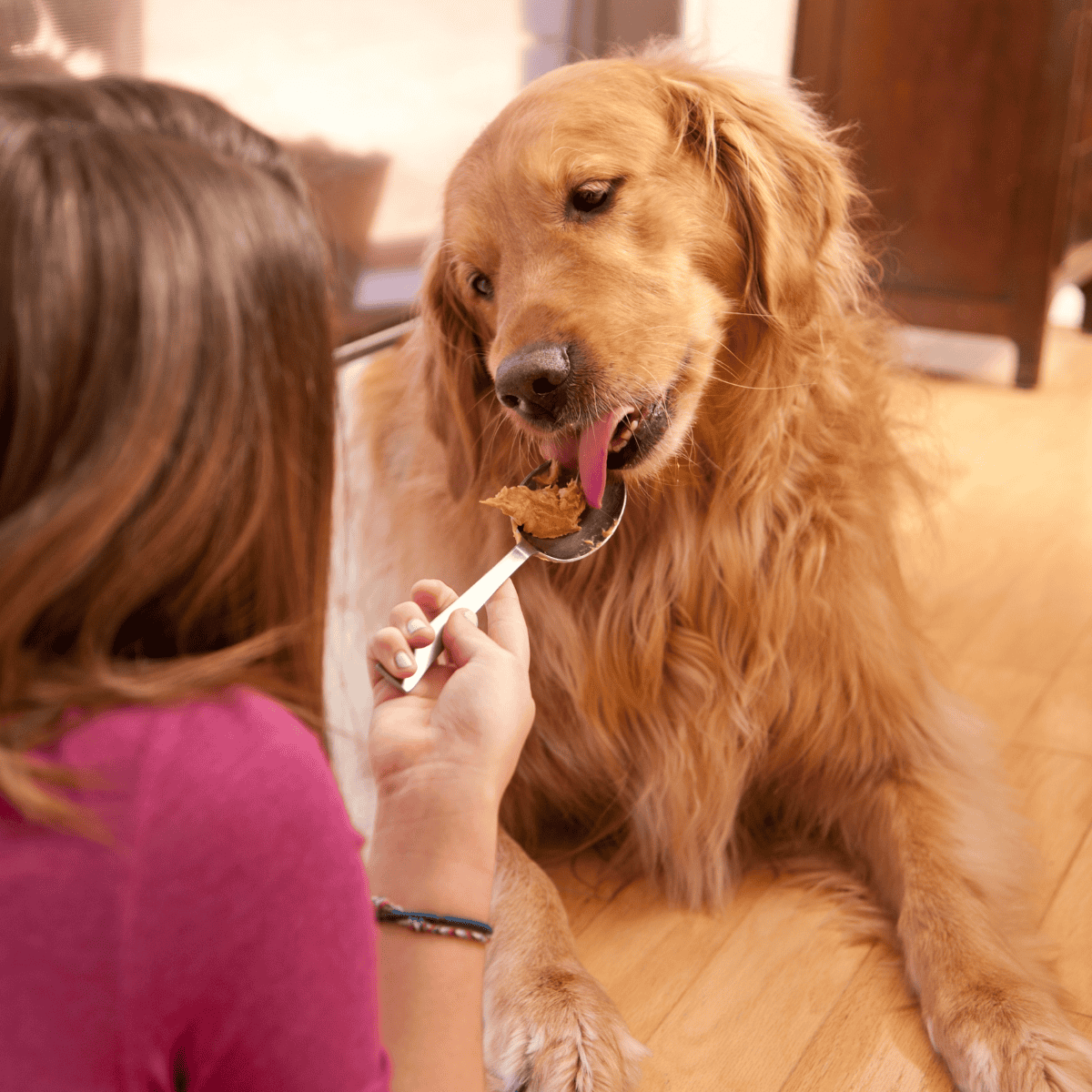
Some dogs are more agreeable to pills or liquids mixed with food. Place the pill in peanut butter or a small piece of cheese. For liquids, a syringe can help. Hold the dog’s mouth closed for a few seconds after administering to ensure swallowing.
Pill pockets are an option. They hide the pill in a tasty treat. Be patient; some dogs may need extra encouragement. Reward the dog with a treat or affection after they take medicine so they stay positive about future doses.
Following Treatment Schedules
Sticking to the treatment schedule is crucial. Worm treatments often require several doses over days or weeks. A missed dose can lower effectiveness. Mark the calendar and set reminders on your phone to avoid missing a dose.
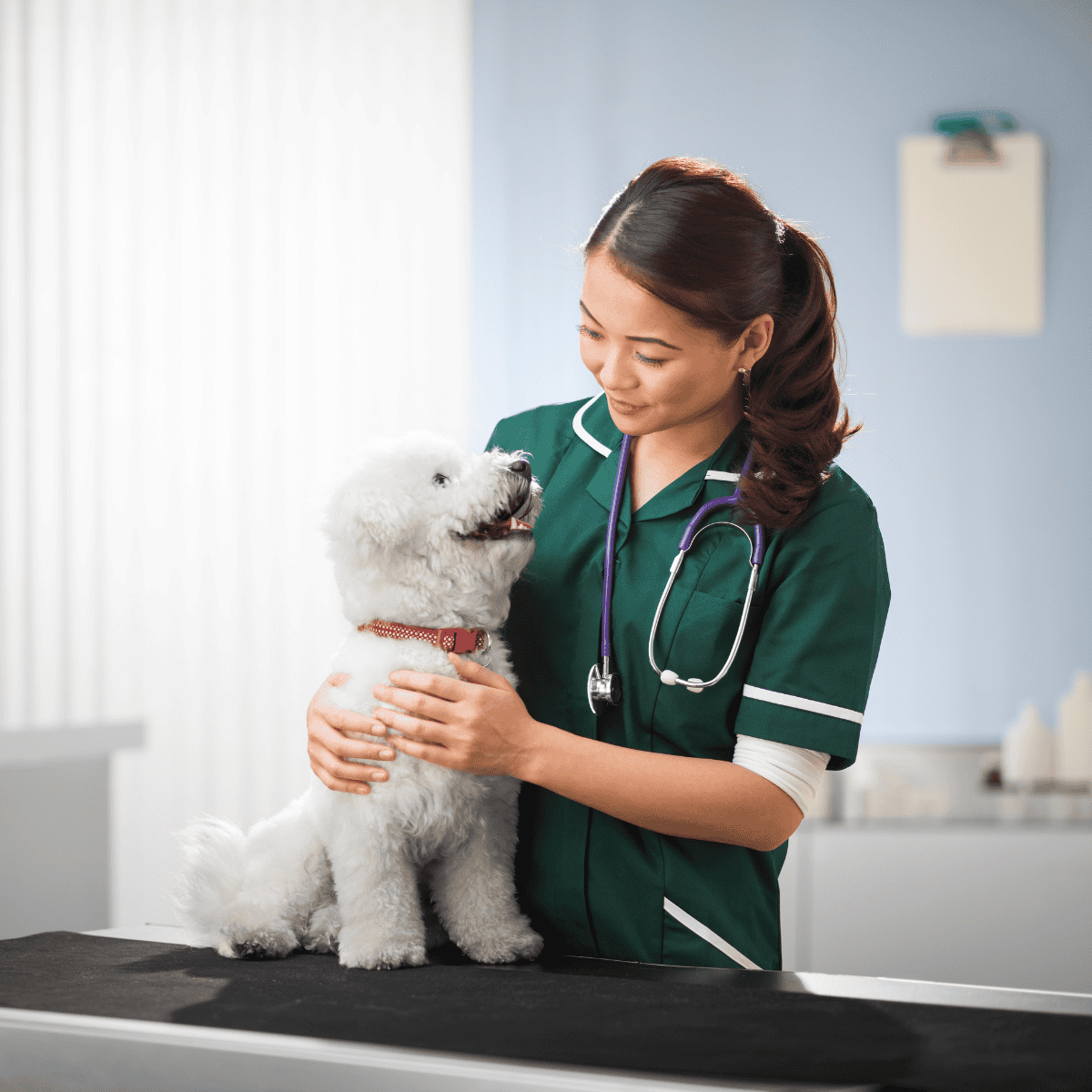
Some treatments may require follow-up with a veterinarian to check if the worms are gone or if additional doses are needed. Always finish the full treatment course, even if symptoms improve early.
Regular check-ups help detect any recurring issues. Make sure to discuss any concerns with the vet immediately for the best ongoing care. Proper scheduling keeps your dog healthy and worm-free.
Preventing Worm Reinfestation
Keeping a dog worm-free involves maintaining a clean environment and regular vet visits. These steps are vital to stopping worms from coming back and keeping your dog healthy.
Environmental Hygiene
Cleaning your dog’s living area is very important. This includes their bed, toys, and any areas they frequent. Wash items like bowls and bedding regularly with hot water. Vacuuming floors and furniture helps remove any eggs or larvae.

Keep your yard clean, too. Dispose of dog poop right away to prevent worm eggs from spreading. Fencing can prevent access to areas where wild animals roam. Avoid feeding your dog raw meat, which can carry parasites.
Regular Health Check-Ups
Regular vet visits are necessary to check for worms. The vet will examine the dog and possibly conduct stool tests. Early detection can prevent serious problems and reinfestation.
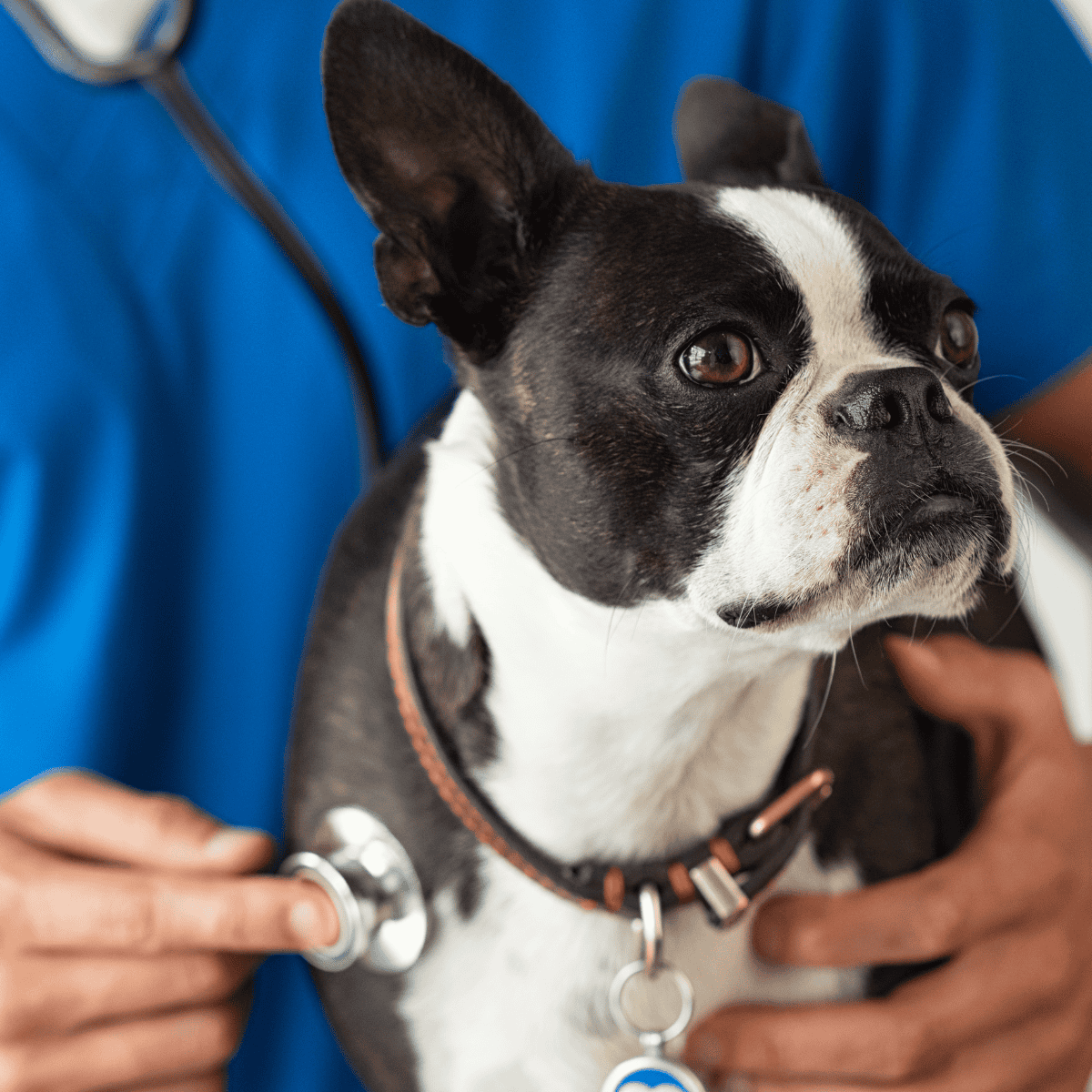
Your vet might recommend a regular deworming schedule. Following this guidance is key to keeping your dog worm-free. Ensure vaccinations are up-to-date, as they can help prevent other health problems.
Keep track of any changes in your dog’s appetite or behavior. Quick attention to such changes can help catch any issues early on. This proactive approach helps maintain your pet’s overall health and happiness.
Nutrition and Diet in Worm Prevention and Recovery
Proper nutrition and a balanced diet play crucial roles in preventing worms in dogs and aiding recovery after treatment. Adjusting a dog’s diet and including helpful supplements can support its immune system and boost overall health.
Dietary Adjustments for Infected Dogs
Dogs with worm infections often need changes in their diet. Fresh, high-quality protein sources should be prioritized. Lean meats, such as chicken or turkey, are ideal choices. Including these proteins ensures that dogs get the necessary nutrients they need during recovery.
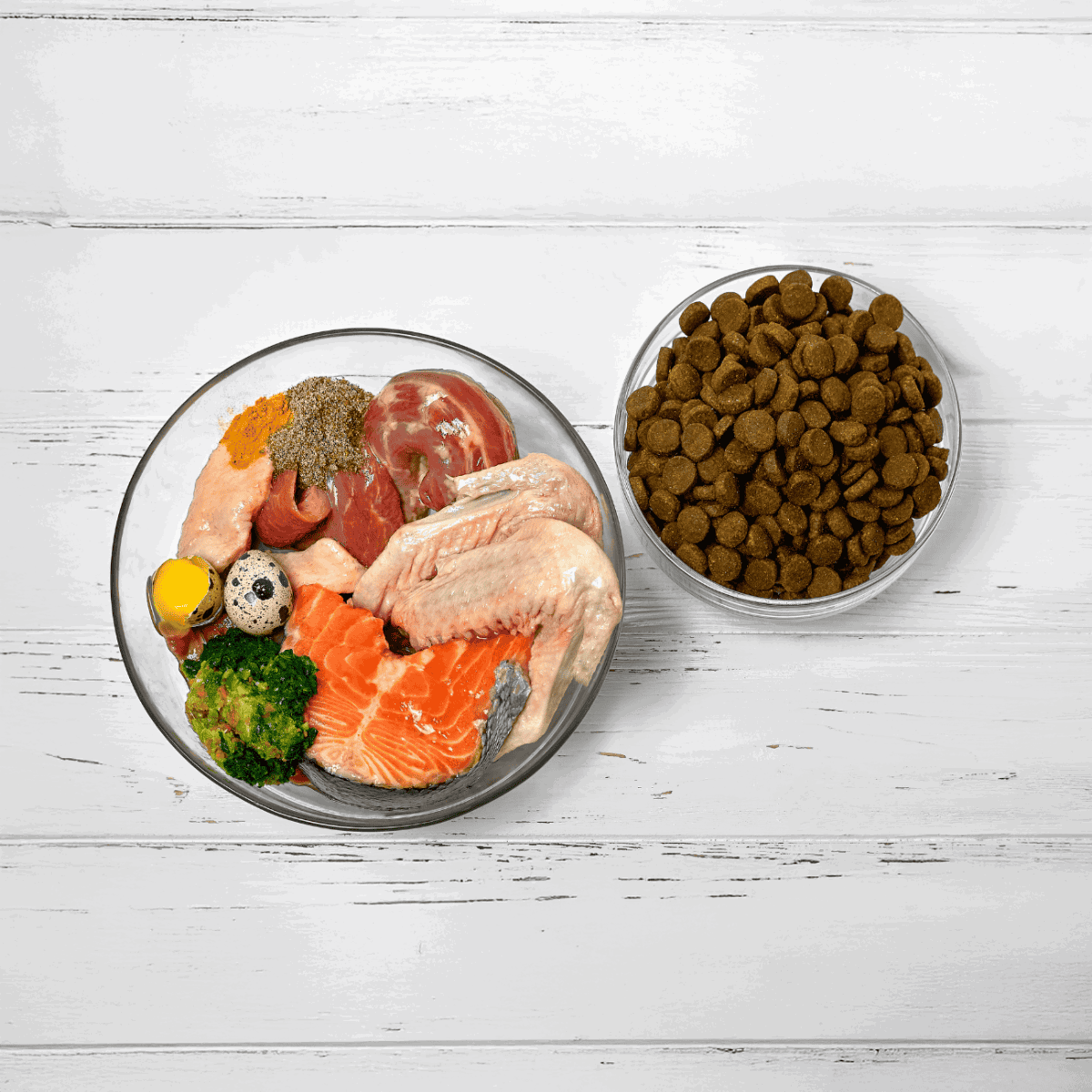
Adding easily digestible carbohydrates, such as brown rice or sweet potatoes, can provide energy without overburdening the digestive system. These simple carbs can help in maintaining strength and promoting gut health.
Hydration is key. Always ensure the dog has access to fresh water. Proper hydration supports kidney function, which is crucial for eliminating toxins from the body.
Supplements to Promote Recovery
While diet is important, supplements can also aid in a dog’s recovery from worms. Probiotics are beneficial as they promote a healthy gut flora balance. A well-balanced gut helps with nutrient absorption and boosts immune defense.
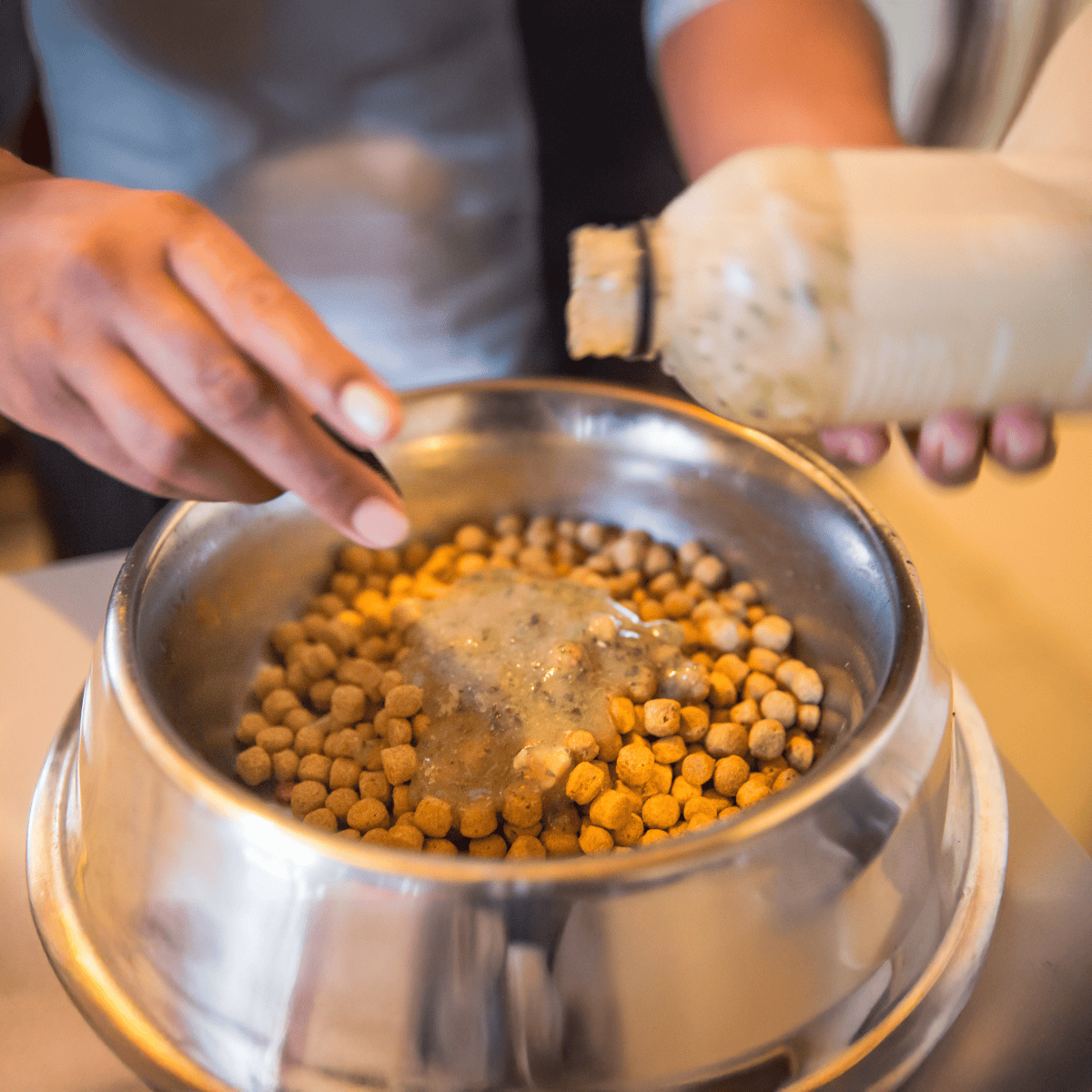
Omega-3 fatty acids, often found in fish oil supplements, can reduce inflammation and enhance skin and coat health. Many dogs benefit from these supplements, especially during stress or illness.
Consider multivitamins tailored for dogs. These can offer essential minerals and vitamins that may be lacking in their diet. Always use supplements recommended by a veterinarian to ensure safety and efficacy.
Monitoring Your Dog Post-Treatment
After treatment for worms, it’s important to keep a close watch on your dog. Look for signs of improvement, like a healthier coat, more energy, and increased appetite. This shows that the treatment is working. Keep a record of these changes. This helps track your dog’s health over time.
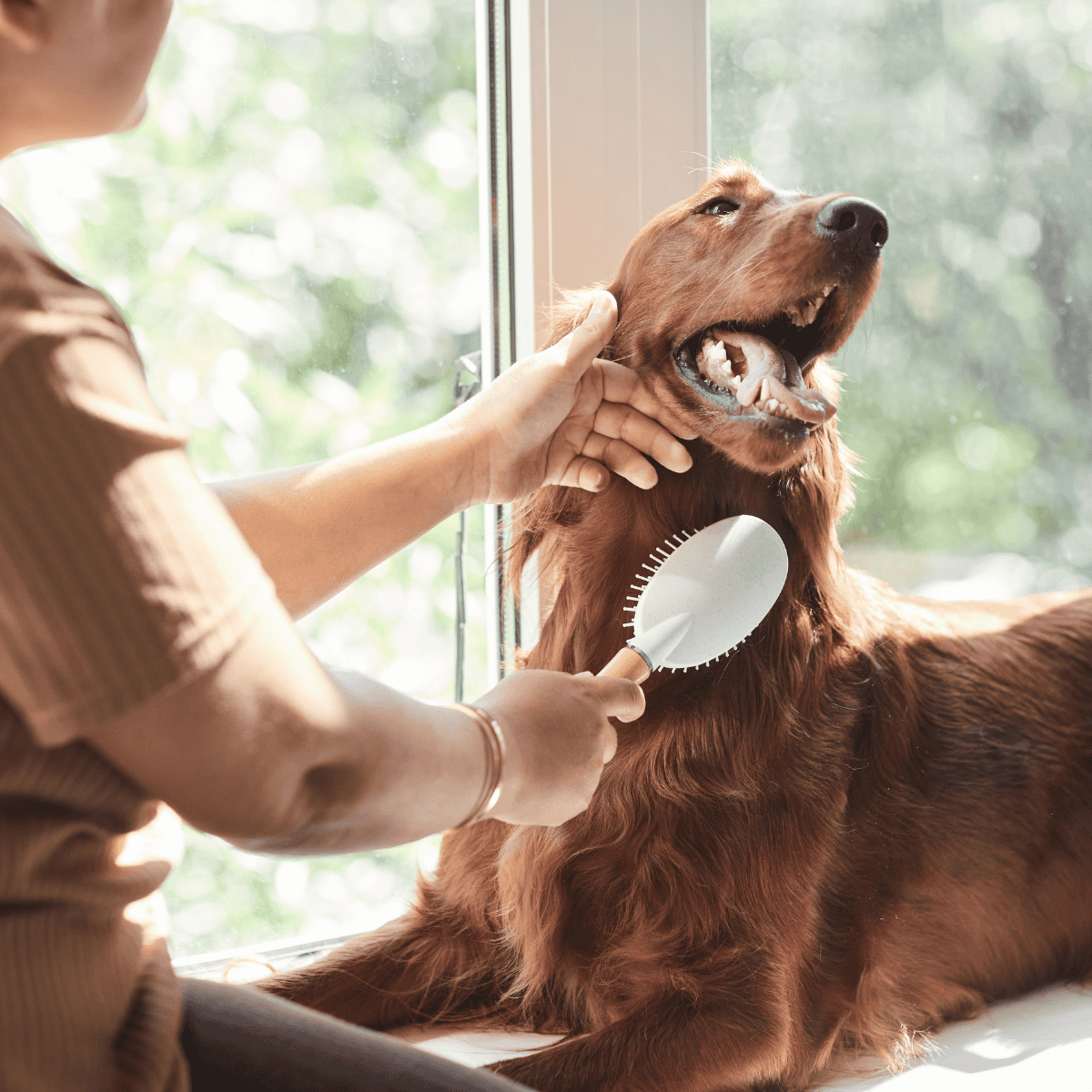
Owners can observe adverse effects from deworming, such as mild diarrhea, loss of appetite and temporary tiredness. If side effects last more than a day, contact the vet. They can give more advice or suggest another check-up.
Make sure your dog’s environment is clean. This helps prevent reinfection. Regularly wash their bedding and clean any areas where they spend a lot of time. This reduces the risk of worms coming back.
Complications Associated with Worm Infestation
Worm infestations in dogs can cause a range of health problems and may require swift veterinary care in severe cases. These complications impact their well-being and can lead to more serious health issues if not treated promptly.
Impact on Dog’s Health
Worm infestations can affect a dog in many ways. When worms are present in the intestines, they may eat nutrients meant for the dog, leading to weight loss. A dog with worms might also have digestive problems, like vomiting or diarrhea.
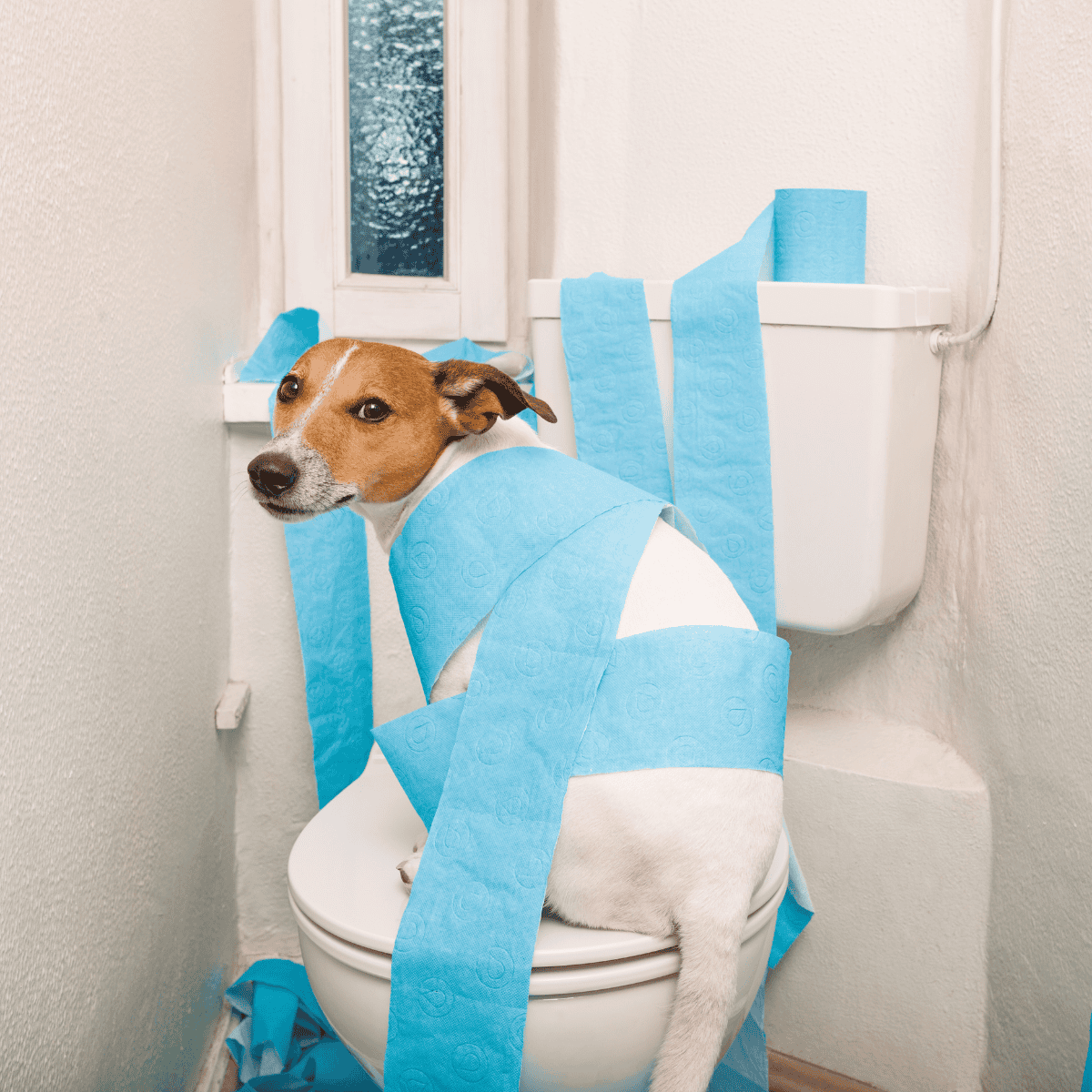
Lethargy and weakness are common signs because the worms can cause anemia or low red blood cell count. In severe cases, especially in puppies, large numbers of worms can cause a blocked intestine. This is a serious condition that needs immediate medical attention.
Furthermore, skin issues can emerge because worms might cause irritation or allergic reactions. Appetite changes are another signal. Dogs might eat more or less than usual. In puppies, infestations can stunt growth, as worms take vital nutrients.
When to Seek Immediate Veterinary Attention
There are instances when a dog’s worm problem becomes an urgent health issue. If a dog shows persistent vomiting or diarrhea, it’s crucial to contact a vet. These symptoms might suggest a heavy worm load or other complications.

Visible worms in vomit or stool indicate a high infestation level. Urgent anemia signs, like pale gums or extreme tiredness, can also mean internal bleeding or severe infestation.
When a dog’s stomach appears bloated or painful, it may suggest an intestinal blockage. Also, if a dog has a severe cough, it might indicate that the worms have moved to the lungs. Always consult a vet if any severe symptoms occur to avoid further health risks.
Deworming Puppies
Puppies need a regular deworming schedule to stay healthy. It’s important to follow a plan and take safety measures to protect them.
Deworming Schedules for Puppies
Puppies should usually start deworming at 2 to 3 weeks old. They need treatments every two weeks until they are 12 weeks old, and then monthly treatments continue up to 6 months.
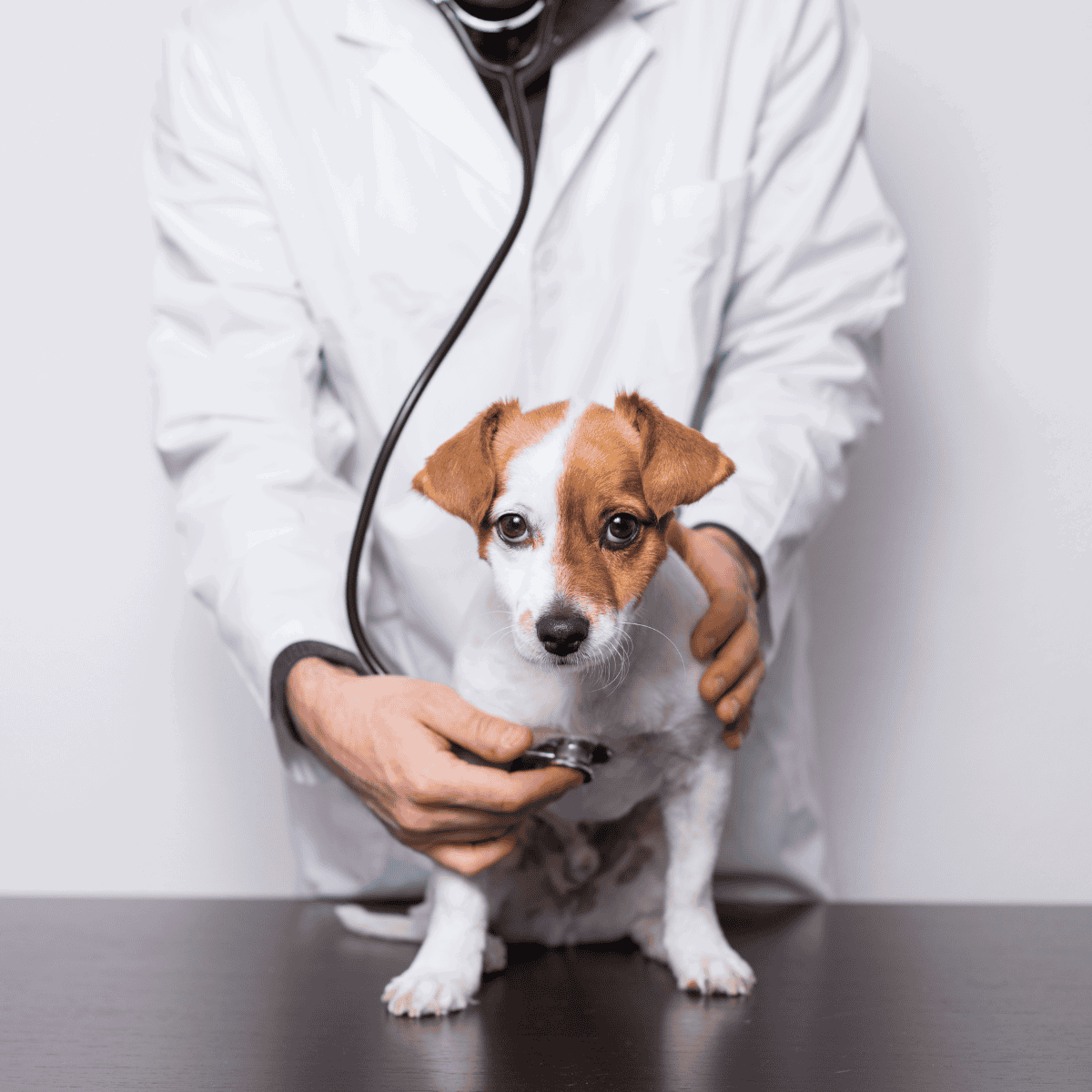
Each type of worm might require a different dewormer. Buying quality products is important. It keeps puppies safe from harmful ingredients.
Safety Measures for Puppy Deworming
Always check with a vet before starting deworming. Vets can choose the right medication and dosage. Puppies are sensitive, and wrong doses could cause problems.
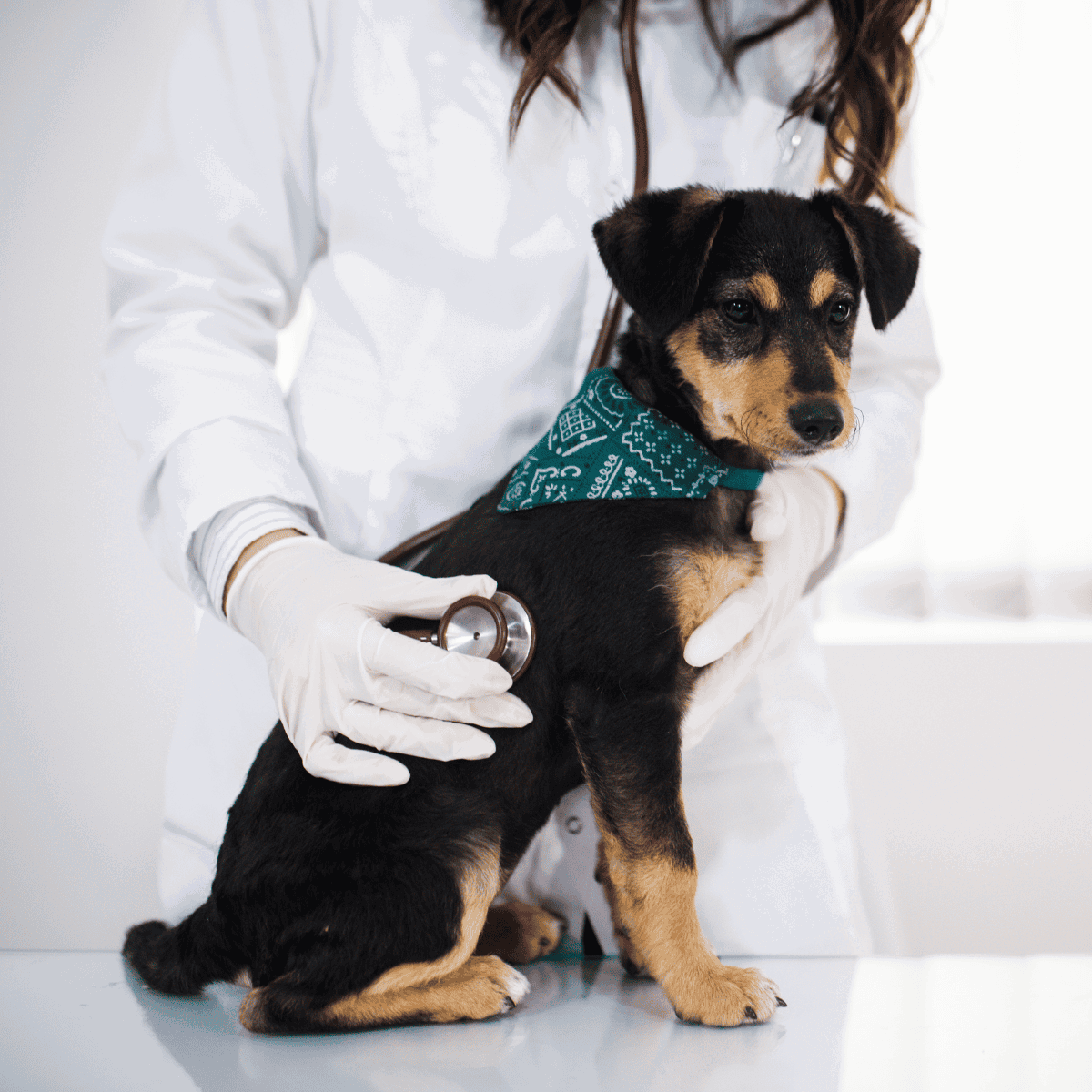
Watch for side effects like diarrhea or vomiting. If these occur, contact a vet right away. Keep the puppy hydrated and comfortable.
Use only vet-approved dewormers. Some over-the-counter products might not be safe. Also, follow all instructions carefully. This includes how to give the medicine and how often.
Keep the environment clean to prevent reinfection. Clean up after the puppy and wash bedding regularly. Frequent cleaning helps keep worms away and protects the puppy.
Can People Get Worms From Dogs?
Yes, certain parasites in dogs can pose health concerns for humans. Worms like hookworms can be contracted when a person comes into contact with infected soil, such as walking barefoot.

When the larvae enter the skin, they can trigger an itchy skin condition known as cutaneous larval migrans. In some cases, these larvae might move to deeper tissues, causing more severe health issues.
Roundworms are another concern. Humans may ingest their eggs after touching contaminated dog feces and then putting their hands in their mouths. This risk is particularly high for children, who often play in areas like sandboxes, where pet waste might be present. Once inside the human body, roundworm larvae can travel to various organs such as the liver, lungs, eyes, and brain, posing significant health risks.

Unlike hookworms and roundworms, tapeworms are less likely to be transmitted to people. Transmission typically requires swallowing an infected flea, which happens infrequently. While the same whipworm species that affects dogs does not infect humans, there is a different variety that can affect people.
It is crucial to follow veterinary advice on worm prevention and maintain strict hygiene routines, especially when pets and children are in close proximity. For further information on how these parasites impact human health, visiting resources such as the Centers for Disease Control website is advised.
Ways to Remove Worms in Canines
Dogs can pick up worms that need to be removed for their health. The usual approach involves giving them medicines designed to eliminate specific worms. These medicines are generally safe and effective. It is important to choose the right type of medicine based on the type of worm affecting the dog. Veterinarians can guide pet owners in selecting the most effective treatment.

The effects of deworming are often minimal. Most dogs don’t show problems after getting dewormed. If side effects do appear, they can include feeling tired, vomiting, diarrhea, or slight changes in the nervous system. These signs are usually mild and don’t need special treatment. However, dogs with specific genetic mutations might react more. Owners should talk to their vets if genetic testing is needed.
Are There Alternatives for Treating Worms in Dogs?
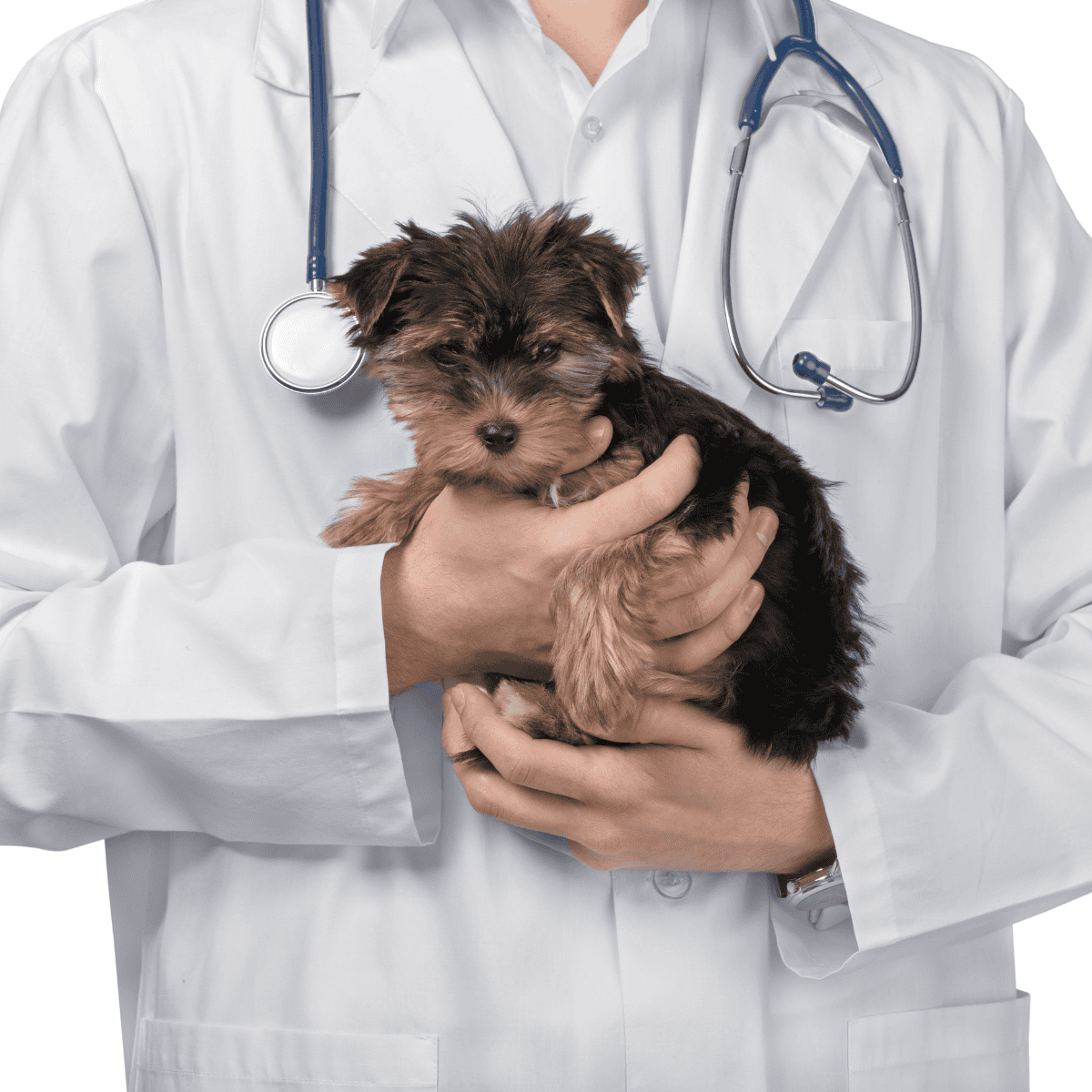
Over-the-counter products and prescription options for treating worms in dogs might not work. Natural remedies or homemade solutions are not recommended. Pet owners are encouraged to seek a veterinarian’s advice for choosing the best treatment.
The decision should take into account the pet’s location and lifestyle. Regular check-ups with a vet ensure the pet’s health and wellness, helping to keep it worm-free and happy.
Ways to Keep Your Dog Worm-Free
Pick Up After Your Dog
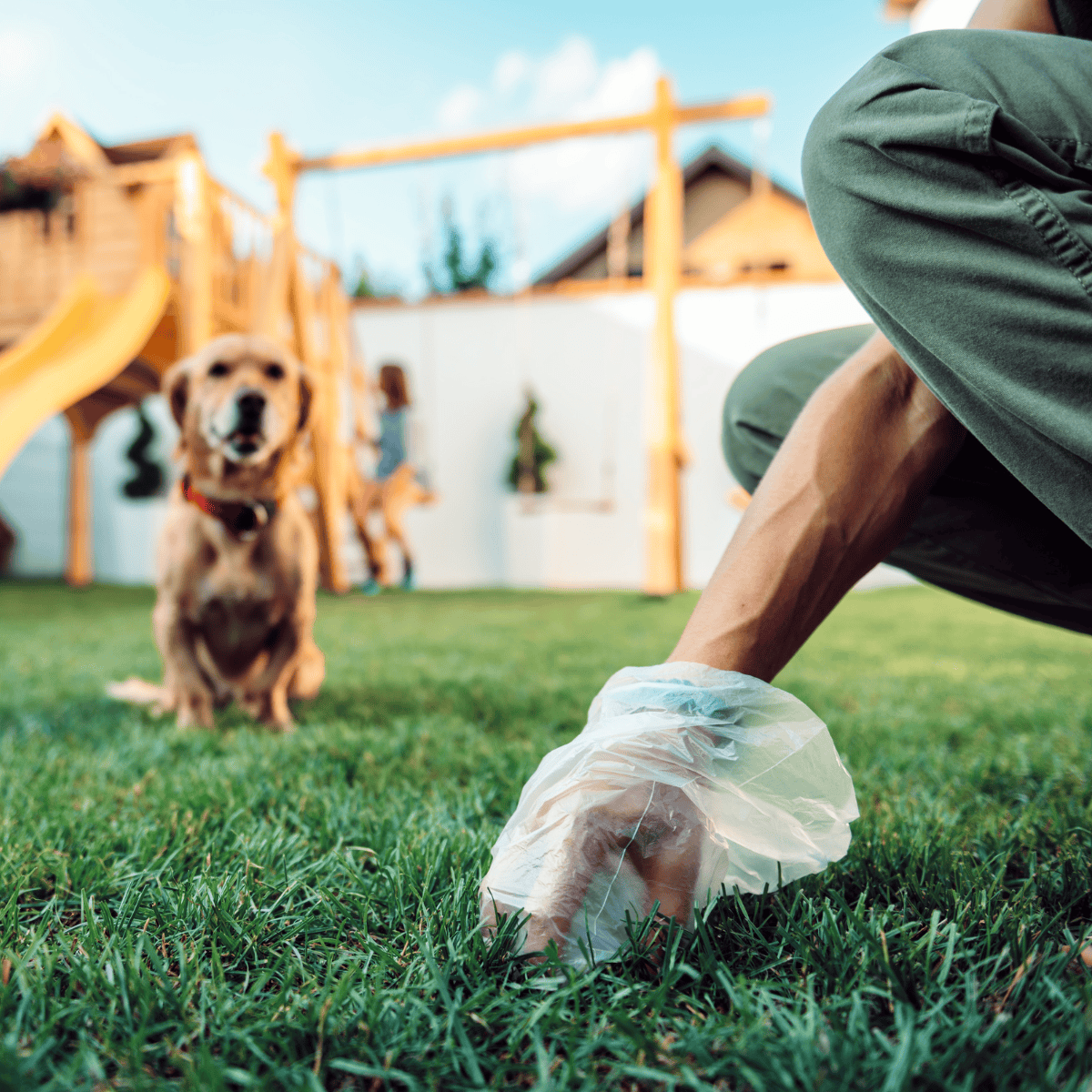
After removing worms from your pet, they can quickly get them again. To avoid this, it’s crucial to clean up their droppings promptly from the yard. Keeping the area clean reduces the chance of reinfestation.
Stay Away from Pet Gathering Spots

Dog parks and similar places where pets gather can be full of worm eggs or larvae. Limiting your dog’s visits to such spots can decrease the risk of picking up parasites from other animals.
Apply Flea and Tick Prevention
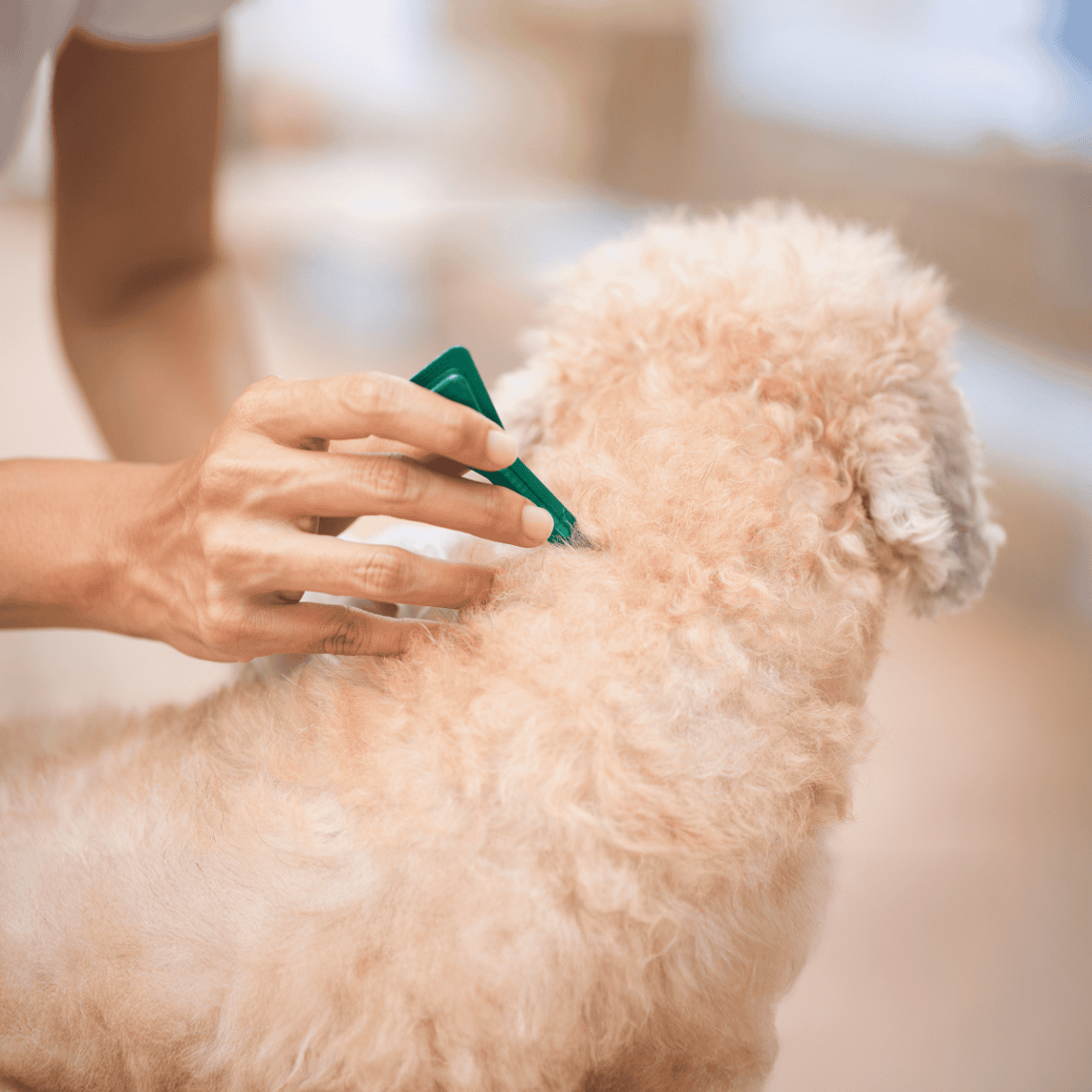
Fleas are often carriers of tapeworms, so keeping them in check is essential. Some medications designed to prevent heartworms can also tackle certain intestinal parasites. Making these a regular part of your dog’s care routine helps keep them healthy.
Prevent Wildlife Pursuits
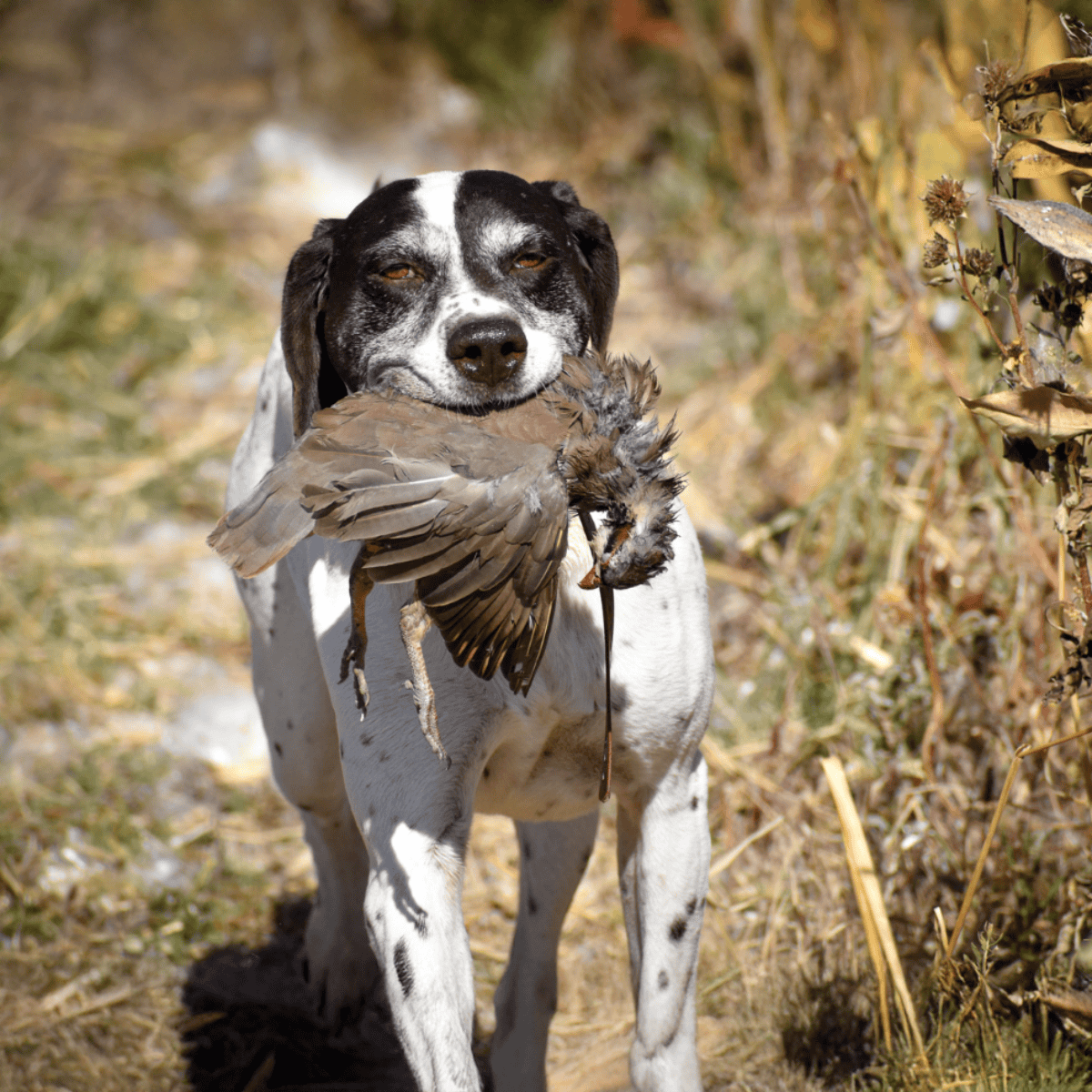
When dogs chase or hunt wild animals, they risk catching worms. Stopping your dog from interacting with wildlife reduces such dangers. It’s vital to manage their activities, especially in areas with high wildlife presence.
Schedule Yearly Stool Checks with the Vet
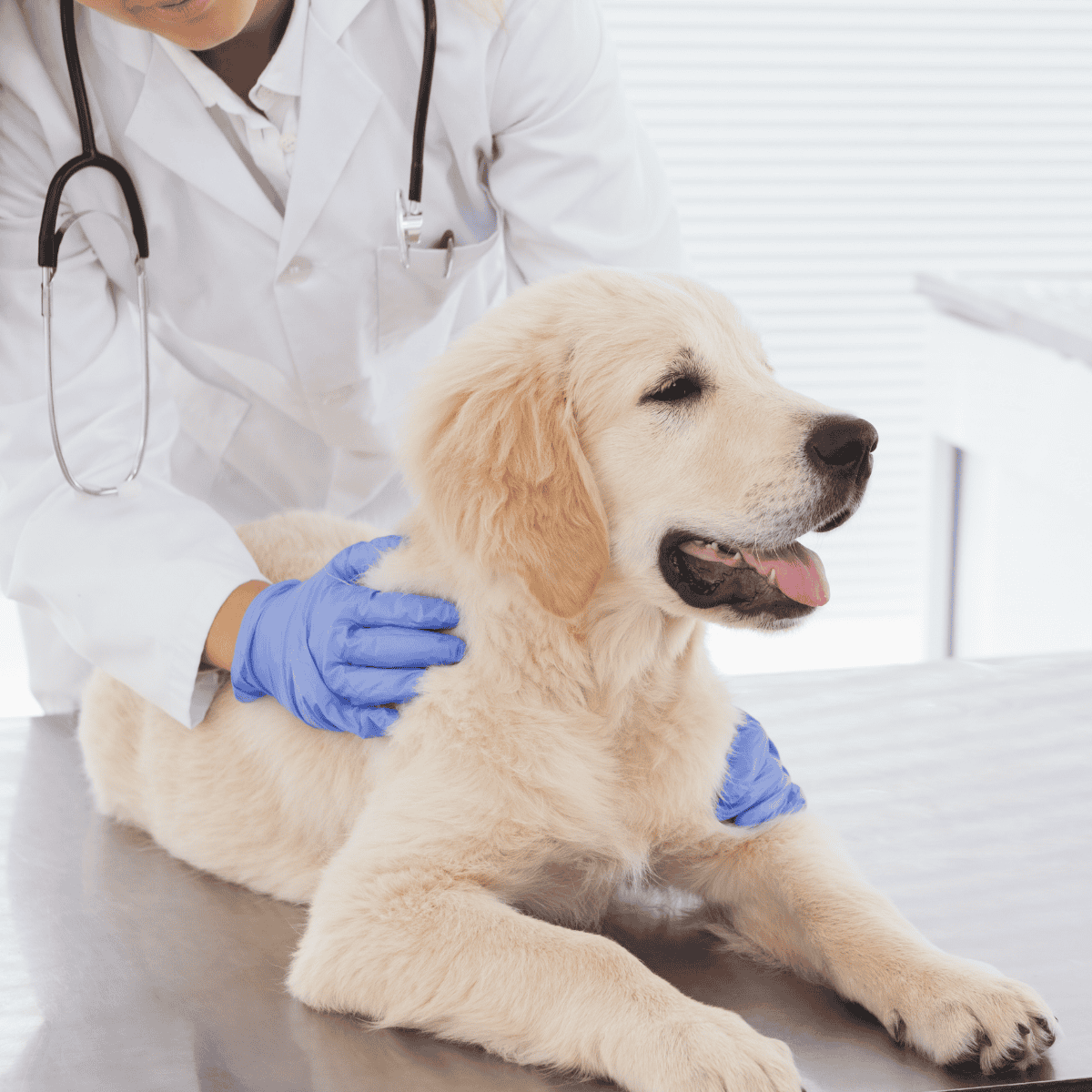
Regular fecal tests are necessary to monitor a dog’s health. A vet should check your pet’s stool at least once each year, more if it’s still a puppy. Depending on the situation, the vet might suggest regular deworming medicines alongside checkups. Using proactive measures helps in maintaining overall health and preventing parasitic infections.
